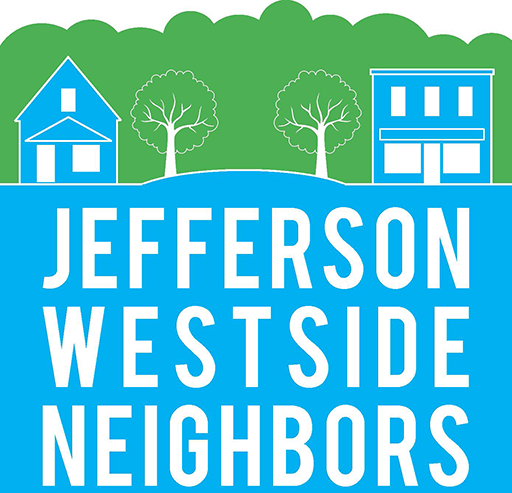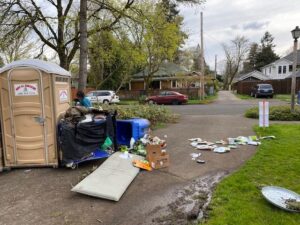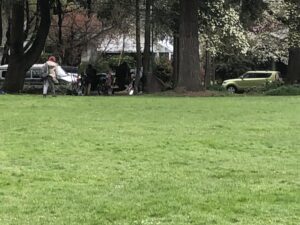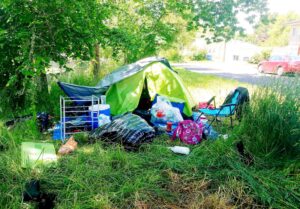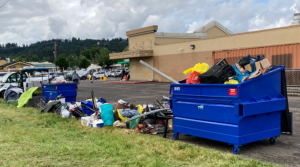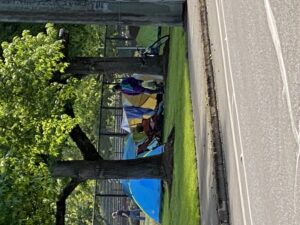July JWN General Meeting via Zoom
We are continuing our special “on-demand” summer general meeting via Zoom.
If you wish to attend, contact us for a link and password.
On the Agenda:
*Microsites in the JWN
Neighborhood Resiliency
- What is a Micro Shelter Site?
Watch this short video
Up to six Conestoga huts, tents or vehicles are allowed at a site under City Code 4.816. Local social service providers will manage the new microsites, overseeing general upkeep, monitoring the health and safety of individuals at the site, and minimizing impacts to the surrounding area and neighborhood.
Microsite residents sign an agreement to abide by the rules of the site, with zero tolerance for violent or threatening behavior, or alcohol or drug use onsite. The sites will have portable toilets, hand washing stations, and garbage collection bins emptied weekly. Residents are expected to keep the site tidy, refrain from disruptive behavior, and be good neighbors. The sites also are fenced to control access and promote safety. Site management includes weekly meetings of residents to discuss concerns and ideas for site improvement.
Who Lives in a Microsite?
People in Microsites already are enrolled in programs with service providers, so have been vetted and are motivated to get off the street.
What has been the Experience with Microsites in other Neighborhoods?
The emergency Microsites that went up at Recreation Centers were set up without consulting neighbors. Obviously, they were concerned, but their experiences were overwhelmingly positive and some were a little sad to see them go.
Why Should the JWN Consider Locations for Microsites?
Obviously, the current strategies for addressing homelessness are not working. We need both a way to get people out of ad hoc camping that is dangerous for people who unhoused and negatively impacts neighborhoods and open space as well as a path out of homelessness. People are outdoors and need someplace to sleep.
Occupied space, by definition, excludes other uses and a microsite can bring eyes and ears to otherwise unoccupied spaces. Residents are highly motivated to protect their space. A sanctioned temporary shelter with sanitation means there will not be unsanctioned camping and the associated problems on that site.
Finally, to improve public safety, we need a way to separate out the homeless from the criminal vagrants who hide in that population and prey upon them as well as vex neighbors and businesses.
Possible locations are in Westmoreland Park by the Fern Ridge Path, Lane Events Center, and the old Naval Reserve site.
For more information, visit the city’s Homeless information site.
